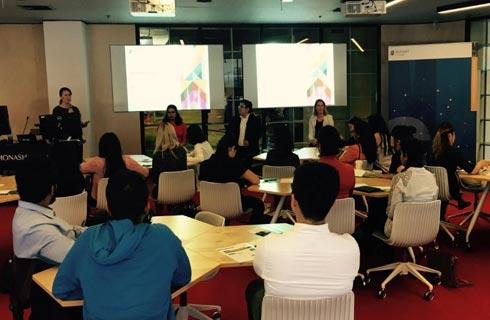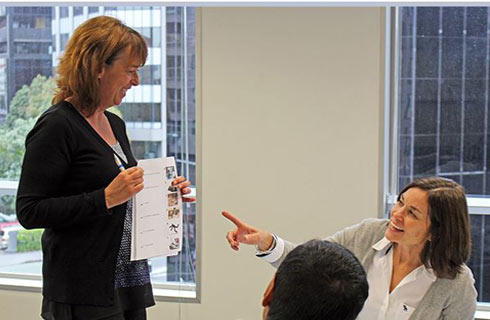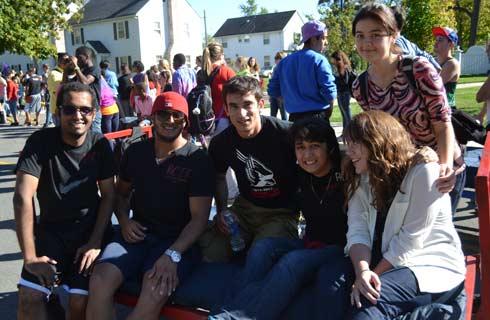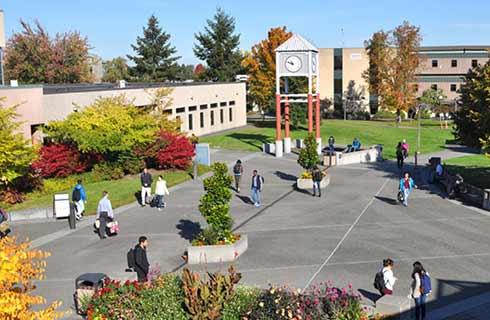Doctor of Psychology in School Psychology

学历文凭
Ph.D.

专业院系
学校心理学

开学时间

课程时长

课程学费

国际学生入学条件
Applicants to the program must submit:
A completed online application form through the psychology common application, PsyCAS. The Apply Now page will direct you to the PsyCAS site.
Transcripts from all academic institutions previously attended.
Official report of Graduate Record Examinations (GRE) scores for the General Test and the Subject Test in Psychology.
Three letters of recommendation from academic and/or professional references.
A statement of professional interests and goals.
IELTS - 6
TOEFLIBT - 70
IDP—雅思考试联合主办方

雅思考试总分
6.0
了解更多
- 雅思总分:6
- 托福网考总分:70
- 托福笔试总分:160
- 其他语言考试:Pearson’s PTE-A 53 and Duolingo 100
CRICOS代码:
申请截止日期:请 与IDP联系 以获取详细信息。
课程简介
The program builds upon Master’s certification level training and prepares students for eligibility for licensure for independent practice. Graduates are able to practice and hold leadership roles in a wide variety of settings, including schools, mental health clinics, child and family agencies, pediatric hospitals, vocational and rehabilitation agencies, educational programs in business and industry, juvenile justice facilities, colleges and universities, and private practice. It is expected that graduates will maintain a continuing pursuit of scholarly activities and a commitment to concerns of human welfare and social justice. The program is designed to provide students with an integrated, sequential, and systematic program of study and field experiences that take theories of adult learning into account and facilitate professional growth over time. Students learn about typical development and human diversity within the context of school settings throughout the program, and the need to understand these issues prior to evaluating systems, communities, classrooms, or individuals is emphasized. Students are encouraged to utilize the Problem-Solver model across all coursework and field experiences, and to apply a preventive and multi-tiered framework when addressing identified problems. These opportunities are provided through coursework, course-embedded and independently-pursued practicum experiences, and the capstone 1,500-hour internship. In conjunction with each course or field experience, feedback regarding growth in relevant domains is shared with students by eitherboth university- and field-based supervisors. It is expected that students will incorporate this feedback into their future work with the goal of continuing to develop the professional competencies required for practice.
相关申请

预科

奖学金

实习机会

在校学习

跨境学习

校园授课-线上开始

在线/远程学习
本校相关课程
Master of Art in General Theoretical Psychology

学历文凭
Masters Degree
下一个开始日期
课程费用总额
Bachelor of Science in Accounting (Florham Campus)

学历文凭
Bachelor Degree
下一个开始日期
课程费用总额
Bachelor of Science and Master of Science in Accounting - Florham Campus

学历文凭
Combined Baccalaureate and Master's Prog
下一个开始日期
课程费用总额
健康科学硕士

学历文凭
Masters Degree
下一个开始日期
课程费用总额
Master of Business Administration - Accounting

学历文凭
Masters Degree
下一个开始日期
课程费用总额
联合医疗技术科学学士学位(弗洛勒姆校区)

学历文凭
Bachelor Degree
下一个开始日期
课程费用总额
其他相关课程
Advanced Doctor of Psychology in School Psychology

菲尔莱狄更斯大学
泰晤士高等教育世界大学排名:

学历文凭
Ph.D.
下一个开始日期
课程费用总额
Doctor of Philosophy in School Psychology

北卡罗来纳大学教堂山分校
泰晤士高等教育世界大学排名:

学历文凭
Ph.D.
下一个开始日期
课程费用总额
学校心理学专家

西伊利诺伊大学
泰晤士高等教育世界大学排名:

学历文凭
First-Professional Degree
下一个开始日期
课程费用总额
Master of Arts in Psychology - School Psychology

洪堡州立大学
泰晤士高等教育世界大学排名:

学历文凭
Masters Degree
下一个开始日期
课程费用总额
Doctor of Psychology in School Psychology

杜肯大学
泰晤士高等教育世界大学排名:

学历文凭
Ph.D.
下一个开始日期
课程费用总额
教育心理学专家

贡萨加大学
泰晤士高等教育世界大学排名:

学历文凭
Ph.D.
下一个开始日期
课程费用总额




